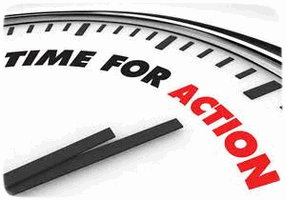
It may seem very overwhelming, but there are a few things to remember…
Your past has made you who you are. You cannot change the past, but you can change how it impacts you in the present. For example, if you had a crappy childhood, nothing can change that. However, you can choose to be bitter, resentful and miserable now, or you can choose to make your present as happy as it can be, despite your past.
Everything you do is because it is more rewarding than the alternative. The catch in recovery is that it may not be as rewarding immediately. In your addiction, when you feel bad, you have a drink and … badda bing…. For a few minutes you don’t feel so bad (or anything for that matter) anymore. In recovery, it may initially suck to deal with whatever is causing the misery, but once you address it, then you will feel better (and it won’t bite you in the butt when you sober up like it did in your addiction).
Motivation involves not only identifying the reasons you want to change, but also addressing all of the reasons you do not want to (or are afraid to change). For example, maybe you want to stop smoking so you can breathe better and have more energy. That’s great. However, a part of you also really does not want to give up the relaxing sensation that you get from smoking. The key is to find something else that accomplishes the same thing as smoking—exercise, meditation, journaling…
Before you can achieve sustained recovery, you need to get honest with yourself about how bad things have gotten because of your addiction(s), depression, anxiety and anger. That means not justifying, minimizing, blaming other people or selectively forgetting things you do not really want to remember. As you embark on your recovery journey, you may find that, after a few weeks, you have forgotten how bad it was. You may start making excuses and trying to convince yourself that it actually wasn’t that bad. This is your addicted mind’s way of trying to hold on to the addiction. Review the activities you have done up until this point to remind yourself why it is worth it, how bad it was and what a happy, healthy future could hold. Likewise, as you start feeling a little bit better you may get over confident and think “I’ve got this licked!” It is important to keep working and focusing on new behaviors, so you don’t fall back into the old ones.
(Preview) Activity: Taking the First Step
We admit that we are powerless over our addiction(s) and/or mental health issues and that life has become unmanageable because of these behaviors and feelings. *Note: This does not mean you will always be powerless. It means you currently do not have the tools to deal with these issues. (Kinda like when you finally convince your spouse to call a professional to fix the leaky faucet).
I admit that I am powerless over ____________________________________and the presence of these things in my life has made my life unmanageable.
Admitted is a hard word. It may make you feel like you are confessing to something, or telling a secret. It is against addicted family rules to talk, trust, feel or tell secrets. Sometimes admitting something to yourself is harder than admitting it to someone else. It takes a lot of courage to admit you are not perfect. You will explore what perfection means to you later, but before you go any further, repeat the following to yourself:
“Nobody is perfect.” “Nobody can do everything all of the time.”
Ask yourself, “If my child came to me and admitted that he or she had a problem, would I think less of him or her?” No, you would not. You would hurt for him. You would want to make it better, but you would not stop loving him.
(Preview) Activity: Power, Powerlessness and Unmanageability
Make a list of all of the things in your life that have become unmanageable (such as relationships, finances, health, etc). Make a decision right now to stop trying to change those things you cannot change. Instead, change how you feel about or react to those things, or change the situation.
Example:
- Unmanageable thing: Relationships
- What parts I can change: My honesty, willingness to communicate and trust
- What parts I cannot change: Other people’s behavior—Instead of staying angry over something I cannot change, I can choose whether to keep them in my life
(The rest of these activities are included in the workbook and walk you through the concepts of admitting something and power, powerlessness, and unmanageability)
Learn more about Motivation and Goal Setting
